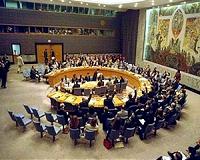 |
Karbala, Iraq (AFP) Dec 15, 2010 Shiites in their hundreds of thousands descended on the Iraqi shrine city of Karbala on Wednesday ahead of the climax of Ashura ceremonies, surrounded by heavy security for fear of attack. The commemorations were marked by dozens of pilgrims chanting anti-corruption songs, in an Ashura tradition whereby they vent their anger over current issues. Black flags, representing the sorrow of Shiites during the rituals, were visible across the city alongside pictures of the revered Imams Hussein and Abbas, both of whom are buried in Karbala. Tens of thousands of faithful were completing the 100-kilometre (60-mile) journey from the capital Baghdad on foot in a show of piety. Violence targeting pilgrims has claimed the lives of 17 people since last week and authorities said around 28,000 soldiers and police were securing Karbala, with a further 7,000 available if needed. In neighbouring Iran, a suicide bomber blew himself up at a Shiite religious procession in the city of Chabahar, killing 33 people, in an attack claimed by Sunni rebel group Jundallah. By the climax in Karbala on Friday, two million followers are expected to be in the city, including around 100,000 foreigners. "I challenge the terrorists who do not want the ceremonies to continue ... I don't know how they consider themselves Muslims," said Hussein Kadhim, a pilgrim from the outskirts of Karbala city. "We will continue with our ceremonies even if they attack us, even if they kill us." Provincial authorities deployed dozens of mobile medical units across the city. They were also testing the quality of water and food being handed out. Private vehicles were banned from entering Karbala and all pilgrims were searched. Six security perimeters have been established around the city, with a particular focus on entrances to Karbala and its old city, close to Imam Hussein's shrine. This year's Ashura commemorations mark a key security test for Iraq's security forces with around one year to go before the around-50,000 US forces left in the country must withdraw completely, under the terms of a security pact. Ashura has in previous years been a target for Sunni Arab extremists, who see the 10-day ceremonies as symbolically highlighting the split between Islam's two main communities. A roadside bomb in the middle of a west Baghdad Shiite procession killed 10 worshippers on Tuesday. A total of 17 pilgrims have been killed since the beginning of the rituals on December 8. The deadliest Ashura attacks were in March 2004, when near-simultaneous bombings at a Shiite mosque in Baghdad and in Karbala killed more than 170 people. Violence levels have dropped dramatically since then, however, and are also much lower than in 2006 and 2007, when communal bloodshed engulfed much of the country -- the number of Iraqis killed in violence in November was the lowest figure in a year for the second month running. The 10-day rituals commemorate the killing of Imam Hussein, a grandson of the Prophet Mohammed, by armies of the caliph Yazid in 680 AD. Tradition holds that the revered imam was decapitated and his body mutilated. Ceremonies begin with devotees drenched in blood after ritually slicing their scalps and flaying themselves with chains attached to sticks, symbolically showing their guilt and remorse for not defending Hussein. Dozens of pilgrims recited poems written by procession leaders bemoaning rampant corruption. "Tell us how many thieves have been presented to the integrity commission," one group chanted, referring to Iraq's anti-corruption agency, the Public Integrity Commission, which was set up in January 2004. "We swear by your name, oh Hussein, that we are not afraid to speak, to express ourselves, to publicly denounce these wolves!" Transparency International rated Iraq the fourth-most corrupt country in the world in its 2010 Corruption Perceptions Index out of 178 surveyed. It ranked ahead of only Afghanistan, Myanmar and Somalia. "We are now allowed to recite these poems once again, after the fall of the former regime," said Hamid Meeri, one of the men chanting. "But the problem now is, the officials do not listen to us." Now-executed dictator Saddam Hussein barred the vast majority of Ashura commemorations throughout his rule until his overthrow in 2003. Shiites make up around 15 percent of Muslims worldwide. They represent the majority populations in Iraq, Iran and Bahrain and form significant communities in Afghanistan, Lebanon, Pakistan and Saudi Arabia.
Share This Article With Planet Earth
Related Links Iraq: The first technology war of the 21st century
 Security Council ends Saddam-era Iraq sanctions
Security Council ends Saddam-era Iraq sanctionsUnited Nations (AFP) Dec 15, 2010 The UN Security Council on Wednesday ended key international sanctions imposed on Iraq in a major move toward bringing closure on the Saddam Hussein era. Three council resolutions halted punishing international restrictions to prevent weapons of mass destruction proliferation and ended the UN oil-for-food program for Iraq. The action will allow Iraq to start civilian nuclear activities, ... read more |
|
| The content herein, unless otherwise known to be public domain, are Copyright 1995-2010 - SpaceDaily. AFP and UPI Wire Stories are copyright Agence France-Presse and United Press International. ESA Portal Reports are copyright European Space Agency. All NASA sourced material is public domain. Additional copyrights may apply in whole or part to other bona fide parties. Advertising does not imply endorsement,agreement or approval of any opinions, statements or information provided by SpaceDaily on any Web page published or hosted by SpaceDaily. Privacy Statement |